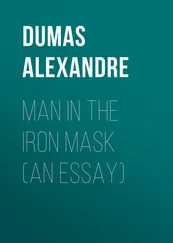Appendix, Nos. 52, 62, 64, 73, 76, 77, 78.
I am not sure whether I am correct in imagining that this was the Marshal d’Asfeld, who distinguished himself at the battle of Almanza, and died at great old age, in 1743.
Appendix, Nos. 52, 54, 55.
Victor Amadeus II., at this time a minor, and under the Regency of his mother, Mary Jane de Nemours. In 1713, he became King of Sicily, which kingdom he was compelled to exchange for that of Sardinia, in 1720; abdicated the throne in favour of his son, in 1730; and died in 1732. This prince possessed in an eminent degree, the attributes of his race – valour and skill in military matters, and faithlessness in his treaties and engagements with his brother sovereigns.
Leopold I. succeeded Ferdinand III. in 1657, died in 1705.
Charles II. the last King of Spain of the House of Austria. – Died in 1700.
Appendix, Nos. 68, 69, 89.
See ante, note, page 18.
Appendix, No. 66.
Appendix, No. 68.
Appendix, No. 67.
Namely, of the delivery of Casale.
Appendix, No. 72.
Appendix, Nos. 75, 79, 81, 83, 88.
Mary Jane Baptista of Savoy, daughter of Charles Amadeus, Duke of Nemours and Aumale, (who was killed in a duel by his brother-in-law, the Duke of Beaufort). Married May 11th, 1665, to Charles Emmanuel II., Duke of Savoy; Regent of the territories of her son during his minority. Died March 15th, 1724.
Delort. Appendix, Nos. 87, 92, 95.
Appendix, No. 92.
Appendix, No. 70.
Delort.
Appendix, No. 75.
Appendix, No. 71.
Benigne d’Auvergne de Saint-Mars, Seigneur of Dimon and Palteau; Bailli and Governor of Sens; successively Governor of Exiles, the Island of St. Marguerite, and the Bastille. At Pignerol he had only the command of the state prisoners, the Marquis d’Herleville being governor of the fortress. St. Mars came to Pignerol a short time before the arrival there of Fouquet, who was the first prisoner confided to his care.
Roux (Fazillac.)
Appendix, Nos. 79, 81.
Delort.
Appendix, No. 88.
Appendix, No. 82.
Delort.
M. Roux (Fazillac) gives these particulars, upon the authority of a letter from Estrades to Pomponne, of May 7th, 1679; and of one from Catinat to Louvois of the same date; neither of which are published.
Roux (Fazillac.)
Appendix, No. 84.
Ibid.
Delort.
Appendix, No. 85.
Appendix, No. 84.
Ibid. No. 85.
Appendix, Nos. 96, 103, 104.
Ibid. No. 48.
Nicholas Fouquet, “Surintendant des Finances,” in 1653. The most lavish, but the most amiable of financiers. – Disgraced in 1664, when he was condemned, by the commissioners appointed to inquire into his conduct, to banishment. The sentence was commuted by the King himself to perpetual imprisonment; and Fouquet died in the citadel of Pignerol, in 1680. On his trial he defended himself with great spirit and talent. See Madame de Sévigné’s interesting Letters to M. de Pomponne upon the subject.
Anthony Nompar de Caumont, Marquis of Peguilhem, and afterwards Duke of Lauzun: whose adventures and eccentricities are too well known to require relation here. It is in speaking of him that La Bruyère says, “Il n’est pas permis aux autres hommes de rêver, comme il a vécu.”
Anne Mary Louisa, of Orleans, Mademoiselle de Montpensier, commonly called the “Grande Mademoiselle.” – A woman of an unpleasant character, according to her own showing in her Memoirs; but who certainly did not deserve to be the victim, as she was, in different ways, of two such men as Lewis and Lauzun.
Appendix, Nos. 85, 87, 91, 92, 94, 95, 97.
Ibid. No. 97.
Ibid. Nos. 84, 85.
Appendix, No. 90.
Ibid. No. 93.
Ibid. No. 96.
Ibid. No. 101.
Charles IV. or V., for he is sometimes called one and sometimes the other, was the son of Nicholas Francis, Cardinal, and afterwards Duke of Lorrain. On the death of his uncle, Charles IV., he took the barren titles of Duke of Lorrain and Bar, but never obtained possession of his territories, (which were usurped by France,) “though his military, political, and Christian virtues and talents, made him worthy to occupy the first throne in the universe.” He commanded the armies of the Emperor for some years with the greatest distinction, married the Archduchess Eleanor, widow of Michael Wiecnowiecki, King of Poland, and died in 1690. Lewis the Fourteenth, on hearing of his death, said of him, “that he was the greatest, wisest, and most generous of his enemies.”
Appendix, No. 102.
Appendix, No. 107.
Appendix, No. 106.
Appendix, No. 108.
Appendix, No. 103.
Appendix, No. 104.
Ibid.
Appendix, No. 105.
If we were to judge of the Christian religion by the manner in which it was professed by Lewis the Fourteenth, we should indeed have a most perverted idea of its precepts. It seems as if the pseudo-christianity of that monarch, only incited him to acts of narrow-minded bigotry and cruelty, allowing, at the same time, full latitude to every kind of licentious excess; while it debarred him from the exercise of humanity and toleration. A good measure of the nature and extent of his religious knowledge and feelings is acquired, by the anecdote respecting Fontpertuis and the Duke of Orleans. When the latter was going into Spain, Lewis objected to his taking the former with him, because he was a Jansenist; but withdrew the objection when assured by the duke that he was only an atheist!
M. Roux (Fazillac), quoting from an unpublished letter of Louvois to St. Mars, dated December 14th, 1681.
About 1 l. 12 s. 0 d. Appendix, No. 126.
Exiles was taken from the French in 1708, by the Duke of Savoy, but restored to them by the treaty of Utrecht.
Читать дальше












